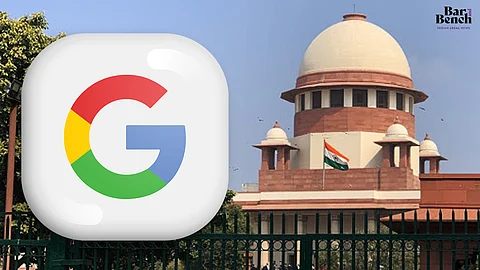
- Latest Legal News
- News
- Dealstreet
- Viewpoint
- Columns
- Interviews
- Law School
- Legal Jobs
- हिंदी
- ಕನ್ನಡ

The Supreme Court on Friday admitted appeals by Google, the Competition Commission of India (CCI) and Alliance Digital India Foundation (ADIF) against a National Company Law Appellate Tribunal (NCLAT) order that had partially upheld the antitrust regulator’s findings that Google abused its dominance in the Android ecosystem [Alphabet v. Competition Commission of India]